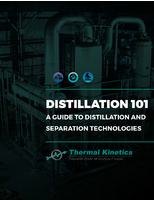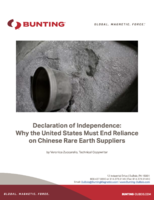Toyota to Share Lean Manufacturing Secrets
Share:
In a keynote session on October 3, reliability experts from Toyota will participate in a special hour-long panel discussion. These leaders will share their views and insights on lean manufacturing, Toyota, the development of global facilities control plant management requirements and the development of technical skill advancement strategies for the next generation of Toyota technicians.
August 9, 2007 -- Toyota is the standard for American manufacturing plants, especially those on the journey to become lean. With its recent roll-out of MR-50 (Maintenance Reduction 50 Percent), Toyota is also the standard for maintenance and reliability organizations within those plants.
Noria Corporation's Reliable Plant magazine offers a rare opportunity to learn best practices from Toyota at its "Lean Manufacturing 2007: Lean Tools for Maintenance & Reliability" conference, to be held October 1-3 at the Hilton Hotel in downtown Cleveland, Ohio. In a prestigious keynote session on October 3, maintenance and reliability experts from the world's No. 1 automobile manufacturing company will participate in a special hour-long panel discussion. These leaders will share their views and insights on lean, Toyota, MR-50, the development of global facilities control plant management requirements and the development of technical skill advancement strategies for the next generation of Toyota technicians.
Among the speakers in this panel discussion will be David Absher, the manager of the facilities control, maintenance, operations and engineering department at Toyota Motor Manufacturing in Georgetown, Ky. The Georgetown plant, winner of numerous awards and accolades, is one of the most revered and emulated industrial facilities in North America.
"Our mind-set is to be aggressive," says Absher, who has worked at Toyota for the past 19 years. "We don't go into anything with the attitude that this is the best we can or could do. If you don't have aggressive goals, how do you determine success? Did you get the maximum out of the initiative? Who knows? We set really high targets and then try like crazy to get there. If we don't reach a target, we try to figure out why we fell short. What stopped us? Is there anything we can do to take it another step?"
Absher says that Toyota takes a ferocious approach to lean projects, including the groundbreaking work that is currently focused on maximizing maintenance and reliability at all of its facilities across the globe.
"Everyone is involved with it," says Absher. "Our people hate waste - waste of motion, all of the seven deadly muda. It's like we have 7,000 industrial engineers working here. They see waste, and they know how to fix it."
Attendees at the Lean Manufacturing 2007 conference in Cleveland will learn how they, too, can implement such an approach and combat waste in all functional areas.
Toyota is just one of the benchmark companies that will speak at the Lean Manufacturing 2007 conference. Other companies that will have top corporate, plant and departmental leaders present keynote addresses and case studies include Honda, Harley-Davidson, Eastman Chemical, Energizer Battery, AstenJohnson and Nordson.
To learn more about the conference and to read a full biography on Toyota's David Absher, visit www.lean2007.com.




